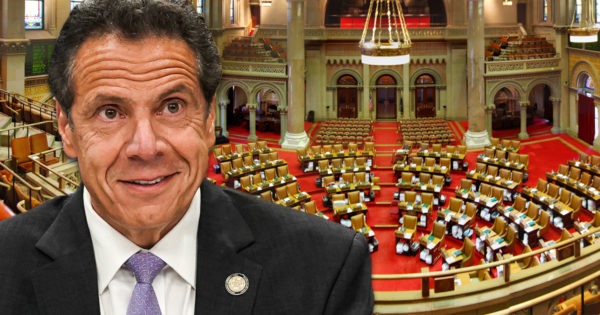
The New York State Assembly is considering a piece of legislation that would give Governor Andrew Cuomo (D), and select department heads, new totalitarian power under the guise of public health.
The New York State Assembly is mulling legislation that would allow government officials – including Cuomo – to “detain or remove” individuals they determine to be a risk to public health.
The bill, introduced by New York State Assemblyman N. Nick Perry (D), would grant unilateral power to Cuomo and various state health officials to forcibly detain and confine any person who is deemed a “danger” because of a contagious disease or the suspicion that someone is contagious with a disease to either a medical facility or alternative space designated by the governor.
“The governor or his or her delegee may, in his or her discretion, issue and seek enforcement of any other orders that he or she determines are necessary or appropriate to prevent dissemination or transmission of contagious diseases or other illnesses that may pose a threat to the public health,” the bill reads.
This is a bill up for consideration in New York State in regards to COVID-19.
Read every word of this and tell me what you think of it: pic.twitter.com/mCkwgwPemJ
— Dr. David Samadi, MD (@drdavidsamadi) January 2, 2021
While the proposed legislation doesn’t designate COVID specifically, it states that in addition to detention, people who are exposed to or infected by a “communicable disease” that could possibly result in “severe morbidity or high mortality” may also be subjected to the law to include testing, medical examinations, forced treatment, forced preventative medication, and forced vaccination by the state while being held.
Requirements under the proposed legislation for “legal” detention include the citing authority to produce “clear and convincing evidence” as well as a court order should the involuntary custody last 60 days.
The proposed legislation also says judicial review would be required if an individual is detained for more than 90 days.
The bill further stipulates that a detained individual may only be released after “subjective scrutiny” from state health officials, who will determine if that person is “infected with the disease or that such contact no longer presents a potential danger to the health of others.”